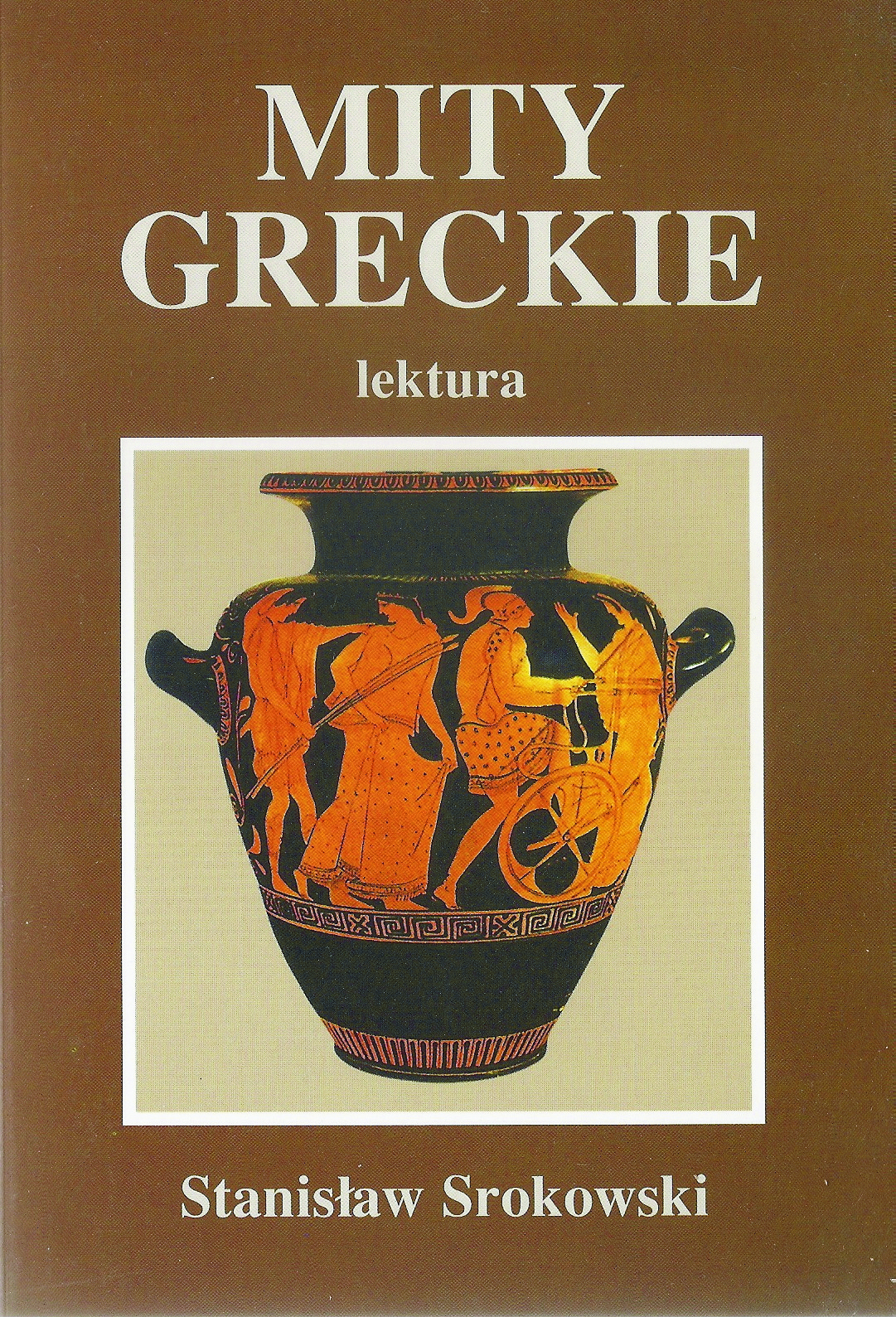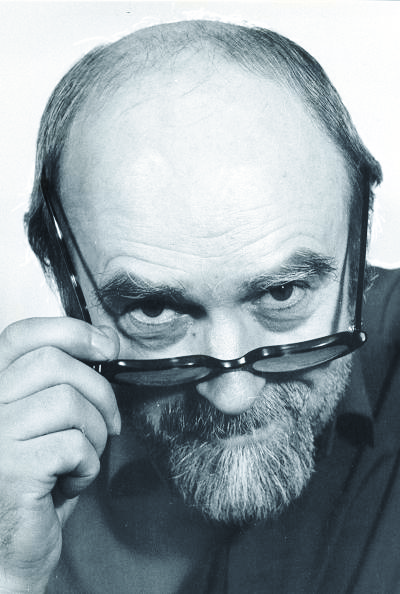Title of the work
Country of the First Edition
Country/countries of popularity
Original Language
First Edition Date
First Edition Details
Stanisław Srokowski, Mity greckie. Wrocław: Izba Wydawnicza „Światowit”, 1993, 156 pp.
ISBN
Genre
Anthology of myths*
Target Audience
Children (school children)
Cover

Courtesy of the publisher.
Author of the Entry:
Summary: Sylwia Chmielewska, University of Warsaw, syl.chm@gmail.com
Analysis: Marta Pszczolińska, University of Warsaw, m.pszczolinska@al.uw.edu.pl
Peer-reviewer of the Entry:
Katarzyna Marciniak, University of Warsaw, kamar@al.uw.edu.pl
Elżbieta Olechowska, University of Warsaw, elzbieta.olechowska@gmail.com

Courtesy of the Author
Stanisław Srokowski
, b. 1936
(Author)
Stanisław Srokowski is a poet, novelist, playwright, literary critic, translator and essayist. Born near Tarnopol (in eastern Poland before WW2, now Ukraine). He started as a high school teacher, and then he branched out into journalism. He also joined “Solidarność” [Solidarity] – the first non-Communist trade union in Communist Poland.
Author of about 50 books, including several novels and short stories, and books for children. He won numerous literary prizes and awards, e.g., Australian International Prize POLCUL and among Polish awards, Stanisław Piętak Literary Award, Józef Mackiewicz Literary Award, and others. His prose and poetry were translated into many languages, including English, Japanese, and several European languages. His literary work is strongly connected with the culture of eastern pre-war Poland, as well as with ancient literature and culture.
Source:
The Author's Website (accessed: November 2, 2021);
"Srokowski Stanisław", in Jadwiga Czachowska and Alicja Szałagan, eds., Współcześni polscy pisarze i badacze literatury. Słownik biobibliograficzny, vol 7: R– Sta, Warszawa: Wydawnictwa Szkolne i Pedagogiczne, 2001, 407–410.
Bio prepared by Sylwia Chmielewska, University of Warsaw, sylwia.chmielewska@student.uw.edu.pl, syl.chm@gmail.com
Summary
Based on: Katarzyna Marciniak, Elżbieta Olechowska, Joanna Kłos, Michał Kucharski (eds.), Polish Literature for Children & Young Adults Inspired by Classical Antiquity: A Catalogue, Faculty of “Artes Liberales”, Warsaw: University of Warsaw, 2013, 444 pp.
This book contains a large number of ancient Greek myths adapted for a young audience. The author treats the following myths: the birth of gods; Demeter and Persephone, Prometheus and Pandora’s box, Atlas’ punishment, love between Eros and Psyche (missing in the 1st edition), Odysseus, Achilles, Perseus (missing in the 1st ed.), Sisyphus, Pegasus, Daedalus and Icarus, Orpheus, Daphne and Apollo, Niobe (missing in the1st ed.), Pygmalion, Narcissus, etc. Homeric myths are placed at the end of the volume. Some of the stories are shortened: occasionally, the author selects only one motif or episode from the life of an ancient character (e.g. the episode of the Sphinx is the only story about Oedipus). Srokowski’s retelling of the most popular myths is followed by a brief reinterpretation of Greek mythology in Polish literature, world art, theatre, and music, written by another author, Adam Sznajderski. The later editions end with a list of the most important Greek gods, heroes, Titans, all the Muses and a list of popular maxims, proverbs and symbols connected to the culture of Ancient Greece.
Analysis
The book presents mythological plots, motifs, symbols and metaphors selected by the author to comply with the school curricula of that time (p. 4). That is the reason why some important plots are omitted or shortened. The author presents the myths in three ways. The first, most frequently used, is preserving versions not ad usum delphini in case of drastic subplots and/or details generally known in Greek mythology, e.g., the accidental death of Bellerophon’s brother, Daedalus killing his clever apprentice, Heracles’ bloody revenge on Augeas’ kin, the massacre of Trojan youths close to the river Scamander or the description of Achilles defiling Hector’s corpse. In some cases, the author does the opposite – he spares the young readers instances of excessive cruelty. Thus, Ouranos has been stabbed by his son, but the details of the injuries and consequences of this act are omitted. Similarly, Orpheus’ death is not emphasized; he just “passed away one day to the shadowland” (p. 74). Also, Oedipus comes from Corinth to avoid killing his father, save Thebes and become king – his fate before and after meeting the Sphinx is not revealed. The third way is through the author’s interpretations, including modifications of the most popular versions: Prometheus places Hope at the bottom of Pandora’s box, Daedalus advises Ariadne to give the thread to Theseus, and that is the reason why he gets punished and imprisoned with his son in the Labyrinth. Another example of an interpretation is the addition of a fairy who appears to Oedipus in a dream to help him solve the Sphinx’ riddle. The fairy’s assistance highlights the fact that a man on his own cannot deal with the riddle. Because Oedipus has the gods’ support, they send him a fairy to liberate the people of Thebes and rid the city of the Sphinx. The last five chapters are connected with Homeric plots starting with the description of Achilles’ shield and ending with Odysseus coming to Calypso.
A chapter by Adam Sznajderski is included, about mythical themes in Polish literature, to facilitate the learning of Greek mythology against the background of its literary reception. Furthermore, it reinforces the value of the book aimed directly at school children, who learn about mythology as required by the curriculum of teaching the Polish language.
Further Reading
[The Author’s Website] (accessed November 12, 2021).
"Srokowski Stanisław", in Jadwiga Czachowska and Alicja Szałagan, eds., Współcześni polscy pisarze i badacze literatury. Słownik biobibliograficzny, vol 7: R– Sta, Warszawa: Wydawnictwa Szkolne i Pedagogiczne, 2001, 407–410.


